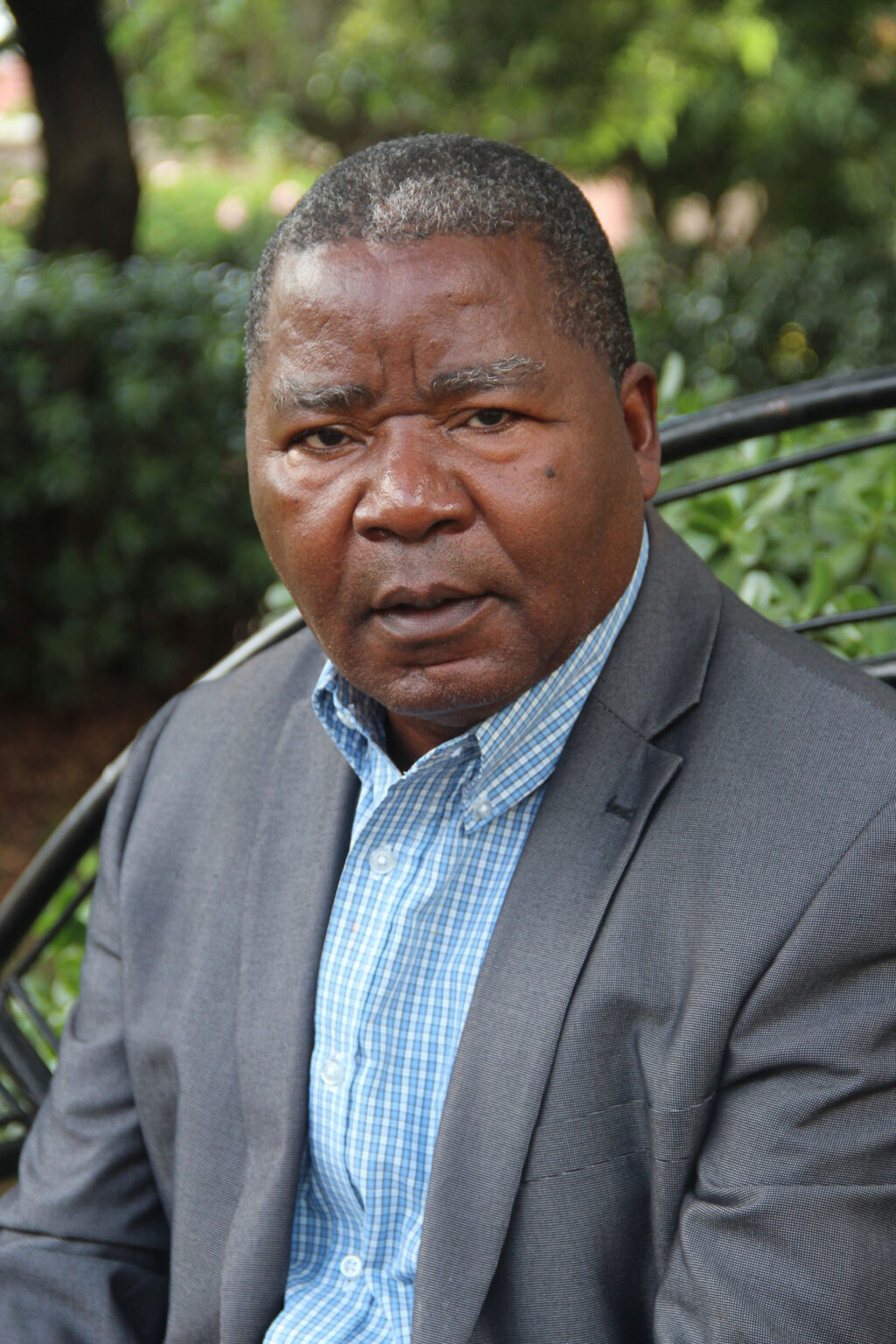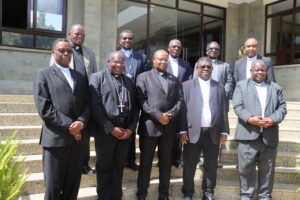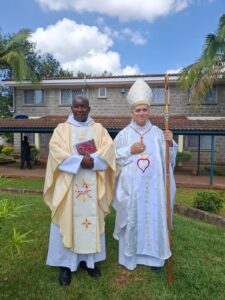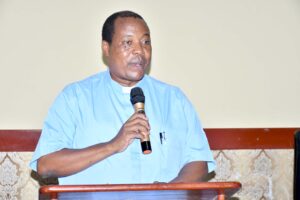TANZANIA: “Giant of African Theology” Dies, Catholic Priest Mourns Fr. Prof. Magesa

Fr. Prof. Laurenti Magesa
Sr. Jecinter Antoinette Okoth, FSSA
The renowned African theologian Prof. Fr. Laurenti Magesa who passed on Thursday, August 11, in Dar es Salaam, Tanzania has been described by a fellow Catholic priest as a “giant of African Theology.”
In his message shared Friday, August 12, the President of the Jesuit Conference of Africa and Madagascar (JCAM) Fr. Agbonkhianmeghe Orobator associated the death of Prof. Magesa to some African culture when “towering personalities in fields of human endeavour are likened to a giant tree in the forest,” hence their demise is aptly expressed with the metaphor of a fallen tree.”
Fr. Orobator a member of the Society of Jesus, popularly known as the Jesuits (SJ) eulogised the late Fr. Magesa as a writer who edited and published several books especially in the field of theology.
“Magesa authored, co-authored and co-edited numerous ground-breaking books, like ‘What is not Sacred? African Spirituality in which he brilliantly explored the beauty of the spirituality of African Religion and its enduring gift to Christianity as a light, not a shadow, as it tended to be portrayed by those who were either ignorant of or biased against its true nature,” the JCAM president noted in his message adding that “in his usual style, he developed a compelling narrative of the importance of life as understood in African Religion, not only as a biological phenomenon, but more importantly as a moral category for making and evaluating public and private ethical choices and conduct.”
He noted that in his first meeting with Prof. Magesa in 2004, the late priest was working on a book ‘Anatomy of Inculturation: Transforming the Church in Africa which was under preparation for publication’.
“He gave me a galley proof to read. The significance of that book was instantaneous and unmistakable: Magesa had written the magna carta of African theology of inculturation. The combination of his penetrating insight, engaging originality and evidence-based analysis redefined the meaning, significance and practice of inculturation,” Fr. Orobator a native of Nigeria narrated in his Friday message.
In his eulogy, Fr. Orobator describes the Tanzanian Clergy Fr. Magesa as a consummate learner and a compassionate teacher.
Fr. Orobator disclosed that the late cleric commenced teaching in the late 70’s and for many years was teaching theology at various institutions, including Kipalapala Major Seminary, Tabora, Tanzania; Tangaza University College, Jesuit School of Theology, Hekima University College, and Maryknoll Institute of African Studies all in Nairobi, Kenya.”
According to Fr. Orobator the late Magesa was a pioneer lecturer at Catholic Higher Institute of Eastern Africa (CHIEA), Nairobi, which later became The Catholic University of Eastern Africa (CUEA).
In his observation, the professional career of Fr. Magesa as a theologian took him to several institutions within and outside Africa as a visiting scholar. “Magesa practiced the art of theologizing with grace, candour and integrity. He respected his students and always made a point to remind them that he, too, was a learner,” Fr. Orobator said and described the late prof. further, “A man of humble demeanour, he was not given to self-aggrandisement. His thinking was always lucid, original and inspiring. He provoked constructive thinking and shunned ideological controversies and intellectual artificiality aimed at damaging the reputation of his trade or the position of those who held a contrary view.”
Fr Orobator acknowledges that Fr. Magesa’s scholarship, research, writing and publication “gave a distinctively African face to Inculturation Theologies, Liberation Theologies and Catholic Theological Ethics, three areas where he was the undisputed leader.”
“Strikingly, he put his theological convictions, ideas and principles into action in his everyday living,” the Nigerian priest emphasised and explained, “during his teaching spell at Hekima University College, he created and led inculturated Eucharistic liturgies that drew on the best traditions and values of African cultures and religion in dialogue with the Gospel.”
As the Church is currently ongoing with preparations for the 2023 bishops’ synod, Fr. Orobator believes that the final work published by the late Prof. “was a contribution in March 2022 to an edited volume on synodality, a Pocket Companion to Synodality: Voices from Africa titled, ‘Journeying Together in Service and Harmony: The African Jamaa as a Model for a Synodal Church.”
He expounded that the late Prof. “explored the meaning and practice of synodality from the cultural perspectives of Africa, pointed out that “what is intended by the synod as a whole is unity in thought, word, and deed of all the faithful who as a body and beyond the purpose of jamaa which is primarily social self-preservation-are on the road toward the objective of their salvation and the redemption of humankind.”
To the JCAM President, Fr. Magesa “remained the humble and amiable Christian that he always was. As we gathered around his bed and expressed our emotions of sadness and grief, he muttered, “Don’t do that … this [suffering and death] is part of life.” His imminent death did not rob him of his graciousness, warmth and respect for people.”


